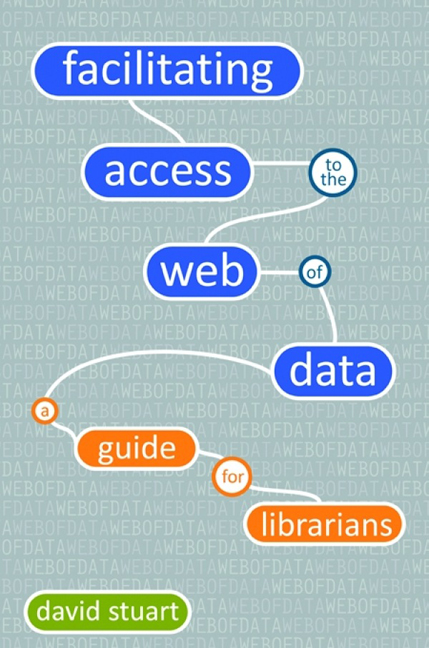Book contents
- Frontmatter
- Contents
- List of figures and tables
- Introduction
- 1 Open data
- 2 A semantic web: one that's meaningful to computers
- 3 Data silos
- 4 The semantic web: the RDF vision
- 5 Embedded semantics
- 6 The library and the web of data
- 7 The future of the librarian and the web of data
- Bibliography
- Index
- M-Libraries 2
- Making the Most of RFID in Libraries
- Access, Delivery, Performance
- Library Mashups
- Miscellaneous Endmatter
7 - The future of the librarian and the web of data
Published online by Cambridge University Press: 08 June 2018
- Frontmatter
- Contents
- List of figures and tables
- Introduction
- 1 Open data
- 2 A semantic web: one that's meaningful to computers
- 3 Data silos
- 4 The semantic web: the RDF vision
- 5 Embedded semantics
- 6 The library and the web of data
- 7 The future of the librarian and the web of data
- Bibliography
- Index
- M-Libraries 2
- Making the Most of RFID in Libraries
- Access, Delivery, Performance
- Library Mashups
- Miscellaneous Endmatter
Summary
Introduction
Clay Shirky has been quoted as posing the question ‘if books catalog themselves, what will librarians do?’ (Siegel, 2009). Whilst the defensive librarian may be quick to point out that there is much more to librarianship than the cataloguing of books, Shirky's underlying point nonetheless still stands: the way people publish and access information is changing, and the role of the library and the librarian must necessarily change with it if they are to continue to provide a valuable service. The growth in the web of data provides one of the most significant changes in the publishing process, and it brings with it a host of new opportunities, not only for those who want to make use of this data, but also for library and information professionals who incorporate facilitating access to the web of data into their work. Although ostensibly many of the practical day-to-day activities will differ from those of today's librarian, the fundamental role of helping users access the information that they require will continue. The question for the library and information professional is whether they are willing to embrace the opportunities of the web of data, or whether they will cling to the traditional idea of a library service for as long as possible. By embracing the web of data, library and information professionals could find themselves with a revitalized role within a wide range of organizations. Alternatively, clinging onto the traditional role is likely to see them increasingly marginalized in the face of the twin forces of cutbacks and new technologies.
This final chapter contemplates the future of the librarian and the web of data. Broadly speaking there are two approaches that the library and information professional can take: they can either embrace it or they can ignore it. The choice is seemingly an obvious one: embracing the web of data offers the potential for them to provide better services to their library users, whilst ignoring it would seem to be the beginning of the end of librarianship.
- Type
- Chapter
- Information
- Facilitating Access to the Web of DataA guide for librarians, pp. 141 - 156Publisher: FacetPrint publication year: 2011



